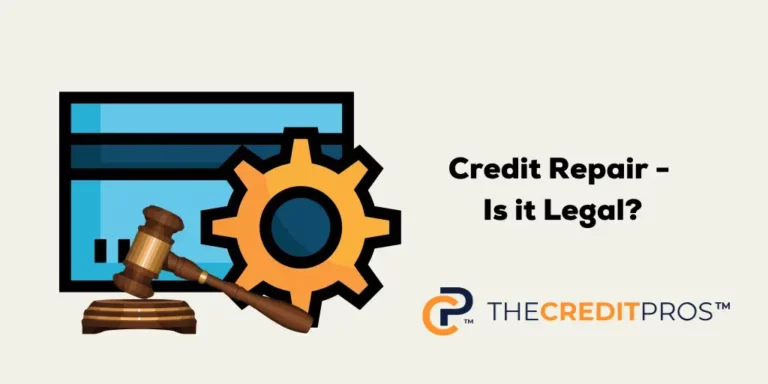The Ultimate List for Navigating Your Credit Repair Journey
The Ultimate List for Navigating Your Credit Repair Journey
Blog Article
Understanding Exactly How Credit Score Repair Works to Enhance Your Financial Wellness
The procedure includes identifying mistakes in credit score reports, disputing mistakes with credit history bureaus, and negotiating with financial institutions to resolve superior financial obligations. The question stays: what specific methods can individuals utilize to not only remedy their credit score standing however additionally make sure lasting monetary security?
What Is Credit Report Repair?
Debt repair service describes the process of improving a person's credit reliability by resolving errors on their credit history record, discussing debts, and embracing far better economic practices. This multifaceted strategy aims to enhance a person's credit history, which is an important factor in protecting financings, charge card, and favorable rate of interest.
The debt repair process generally begins with a detailed review of the individual's credit history report, permitting the recognition of any type of mistakes or inconsistencies. The individual or a credit rating repair expert can launch disagreements with credit rating bureaus to rectify these concerns when mistakes are pinpointed. In addition, bargaining with lenders to clear up arrearages can even more improve one's economic standing.
Additionally, adopting sensible monetary practices, such as timely costs repayments, reducing credit application, and preserving a diverse debt mix, contributes to a healthier credit history account. Generally, credit scores repair works as a vital approach for individuals looking for to gain back control over their financial wellness and secure much better loaning chances in the future - Credit Repair. By taking part in credit history repair, people can lead the way towards achieving their monetary objectives and improving their total top quality of life
Typical Credit Scores Record Mistakes
Errors on credit score reports can considerably affect a person's credit rating, making it important to recognize the usual kinds of mistakes that might arise. One prevalent problem is wrong personal info, such as misspelled names, incorrect addresses, or wrong Social Safety and security numbers. These mistakes can lead to confusion and misreporting of creditworthiness.
One more typical mistake is the reporting of accounts that do not belong to the individual, commonly as a result of identification burglary or clerical blunders. This misallocation can unjustly lower a person's credit history. Additionally, late repayments may be erroneously videotaped, which can take place as a result of payment processing errors or inaccurate reporting by lenders.
Credit line and account balances can likewise be misstated, resulting in an altered sight of an individual's credit score use proportion. Moreover, out-of-date information, such as closed accounts still showing up as energetic, can adversely influence debt analyses. Public documents, consisting of insolvencies or tax obligation liens, may be wrongly reported or misclassified. Understanding of these common mistakes is important for effective credit score administration and repair work, as resolving them quickly can aid individuals keep a healthier economic account.
Actions to Disagreement Inaccuracies
Challenging inaccuracies on a credit report is an essential process that can help bring back a person's credit reliability. The first action involves acquiring a present duplicate of your credit rating report from all three significant credit bureaus: Experian, TransUnion, and Equifax. Review the record meticulously to identify any type of errors, such as inaccurate account details, balances, or payment histories.
Next, initiate the conflict process by calling the pertinent debt bureau. When sending your dispute, plainly describe the inaccuracies, give your evidence, and consist of personal recognition info.
After the dispute is filed, the credit score bureau will examine the insurance claim, typically within 30 days. Maintaining accurate records find throughout this process is essential for efficient resolution and tracking your credit health.
Building a Strong Debt Profile
Just how can people effectively cultivate a robust credit profile? Building a strong credit history profile is necessary for safeguarding favorable financial opportunities. The foundation of a healthy credit report account begins with prompt expense repayments. Constantly paying charge card costs, fundings, and other responsibilities in a timely manner is important, as repayment history considerably affects credit ratings.
In addition, preserving low credit history usage ratios-- preferably under 30%-- is important. This means maintaining bank card equilibriums well below their limits. Expanding debt types, such as a mix of revolving debt (charge card) and installment loans (automobile or home car loans), can additionally enhance debt profiles.
Frequently keeping an eye on credit report reports for mistakes is equally crucial. Individuals need to review their credit scores records at the very least annually to identify inconsistencies and dispute any kind of mistakes without delay. Additionally, preventing too much credit report questions can prevent potential unfavorable effect on credit history ratings.
Long-lasting Advantages of Credit Repair

In addition, a stronger credit report profile can help with better terms for insurance policy premiums and even affect rental applications, making it simpler to secure real estate. The mental benefits need to not be forgotten; individuals who effectively fix their debt commonly experience decreased stress and boosted confidence in managing their financial resources.
:max_bytes(150000):strip_icc()/how-much-does-it-cost-to-repair-my-credit-5077091Final-c21a98d1b4e9471ca8ae8b949b17d9d2.jpg)
Conclusion
In verdict, credit rating repair work serves as an essential device my review here for improving financial health. By recognizing and challenging mistakes in credit report reports, individuals can rectify mistakes that adversely impact their credit report scores.

The long-term benefits of credit history fixing expand far past simply boosted credit score scores; they can significantly improve a person's total monetary health and wellness.
Report this page